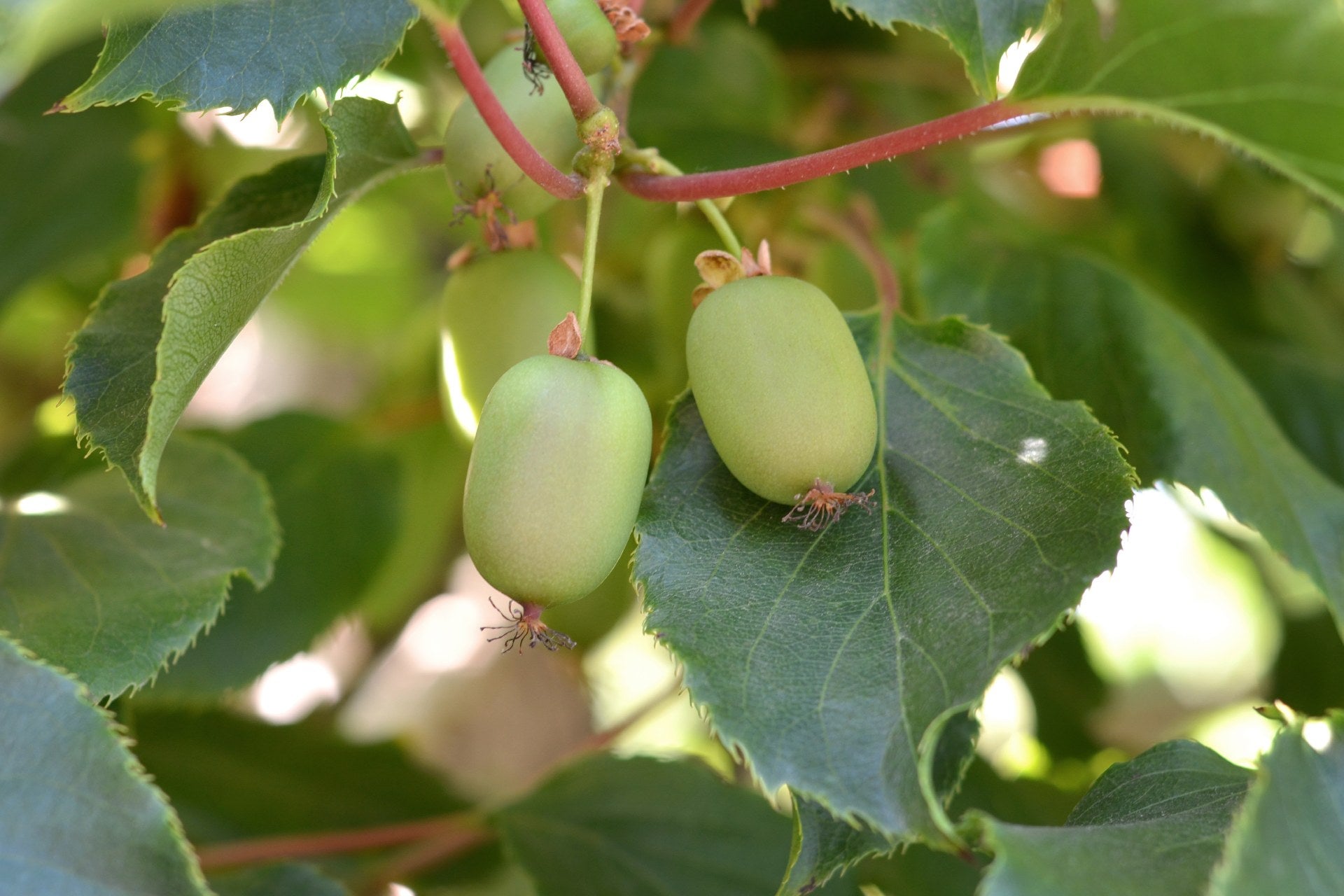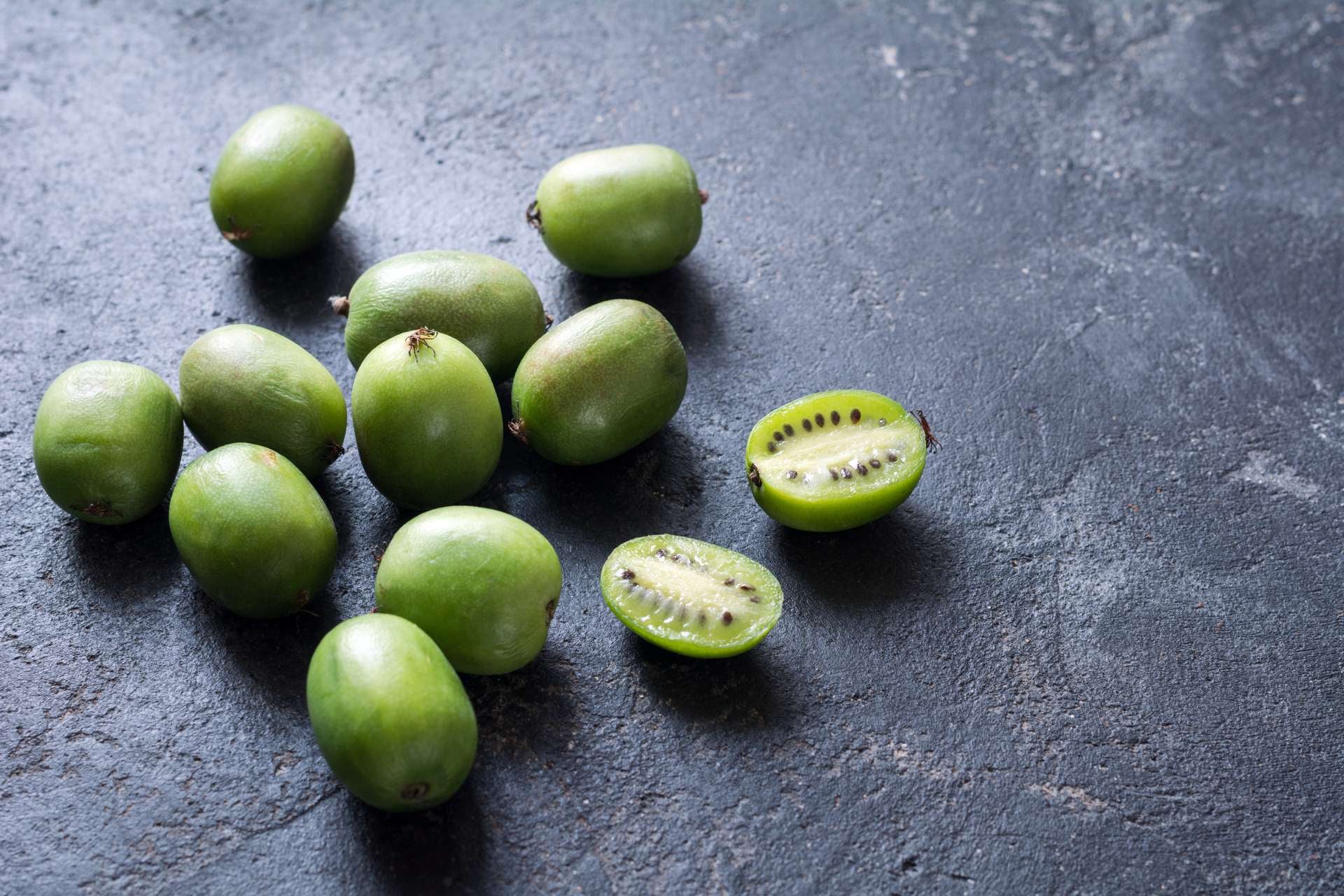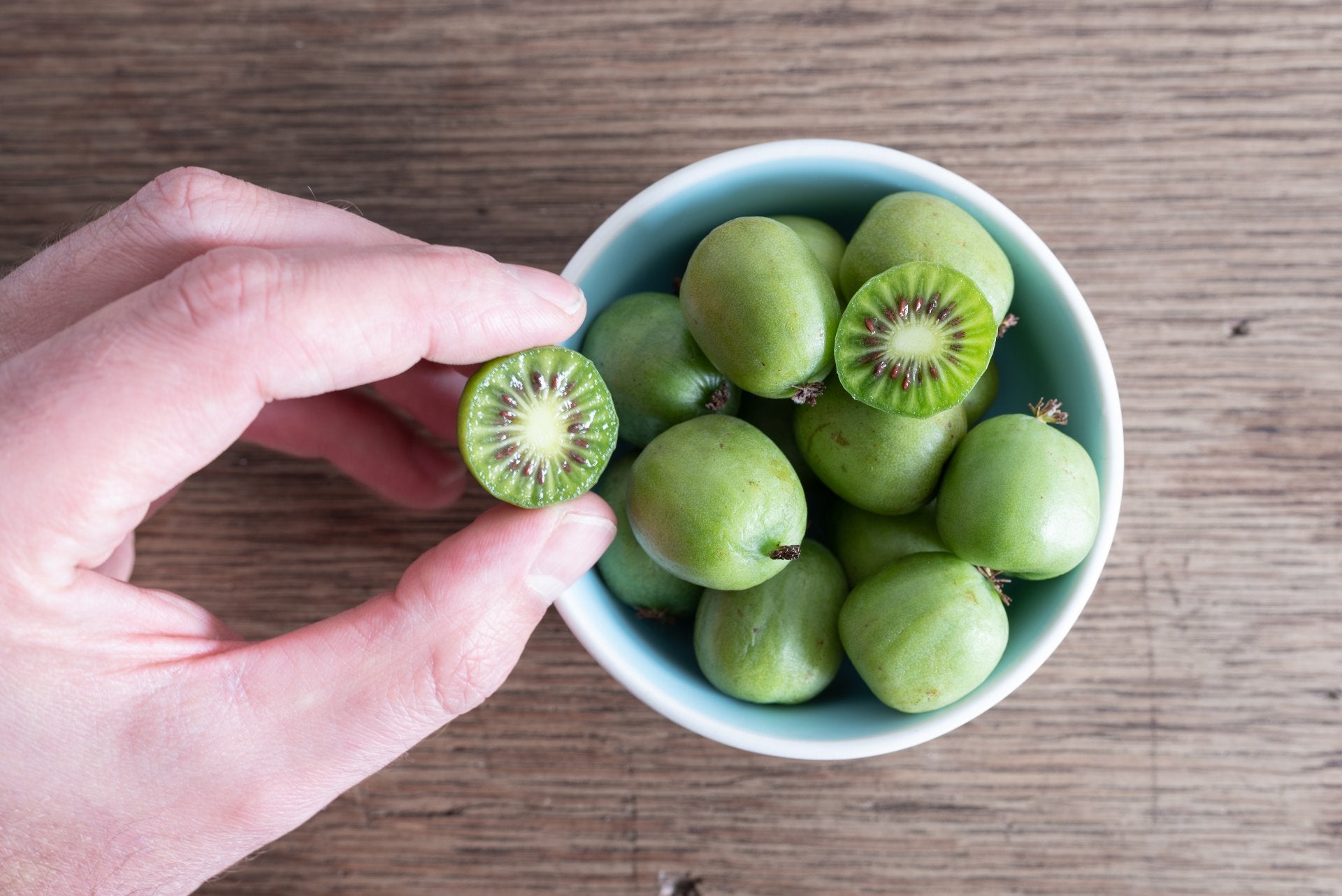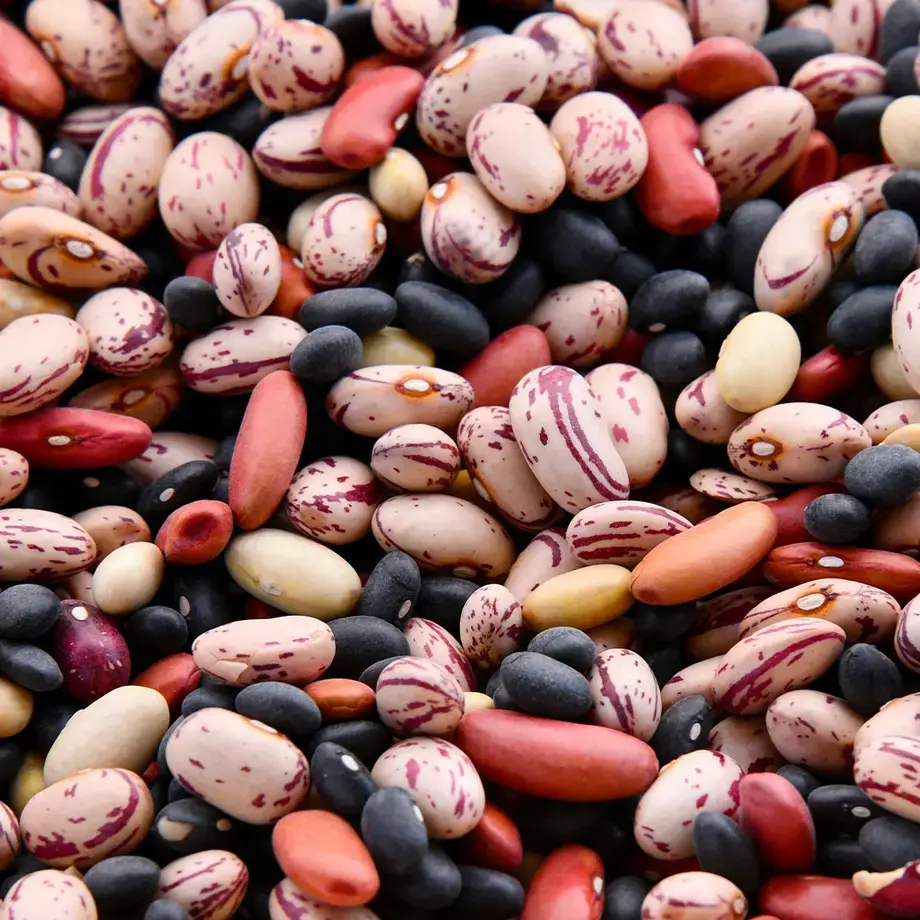Kiwi berries are rich in antioxidants, which help prevent cardiovascular disease and cancer. Antioxidants protect cells from the damage caused by free radicals and oxidation.
Kiwi berries also help to reduce cholesterol levels, keep the heart healthy, and stabilise insulin levels.
Kiwi berries have a higher vitamin C content per gram than kiwi fruit. Vitamin C is essential for good health. Getting plenty of vitamin C in your diet is crucial to maintain healthy skin, bones, and blood vessels. Vitamin C also plays a role in cellular growth and repair, helping wounds to heal faster.
Compared to kiwi fruit, kiwi berries are also higher in fibre. Fibre is essential to a healthy diet because it helps to regulate digestion. Higher levels of dietary fibre are also associated with other significant health benefits such as lower cholesterol, regulated blood sugar, and weight management.
Kiwi berries contain more potassium per gram than kiwi fruit. An essential mineral in the human diet, potassium is involved in many vital processes within the body. Potassium plays a critical role in muscle and nerve signals and has been linked to lower blood pressure and stroke prevention.
Are kiwi berries genetically modified?
The kiwi berry can sometimes be met with suspicion by people who are unfamiliar with it. Due to their small size and striking resemblance to the kiwi fruit, it is often assumed that kiwi berries are genetically modified. However, kiwi berries are purely natural products that haven't been altered. In fact, kiwi berries have been consumed in China and Japan for centuries, long before the technology required for genetically modified food was introduced.
How to eat kiwi berries












